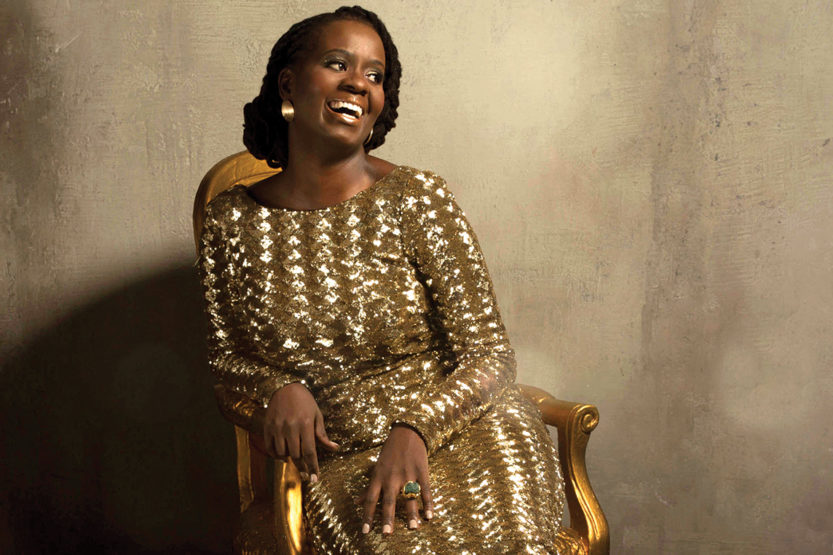The Sounds of Somi
 "JazzTimes" magazine describes Somi as “the earthy gutsiness of Nina Simone blended with the vocal beauty of Dianne Reeves.” (Image courtesy of Somi)
"JazzTimes" magazine describes Somi as “the earthy gutsiness of Nina Simone blended with the vocal beauty of Dianne Reeves.” (Image courtesy of Somi) “I’m an alien. I’m a legal alien. I am an African in New York,” sings Laura Kabasomi Kakoma, ’99 LAS, in the song “Alien” from her 2017 release Petite Afrique.
Kakoma grew up in Champaign, the daughter of East African immigrants, and now lives in Harlem. As a musician and singer-songwriter, her goal is to give voice to the black and immigrant experience. Her work, which brings together jazz, traditional African music, soul and pop, is making a mark: Petite Afrique was awarded the 2018 NAACP Image Award for Outstanding Jazz Album.
“It was an honor to be acknowledged in this way,” says Kakoma, “especially by an organization such as NAACP, the nation’s oldest civil rights organization.”
Kakoma—who played shows in Austria, England, Finland, France, Germany, Italy and Switzerland over the summer—is known for penning songs that are haunting and universally wise. They complement her stage presence, which JazzTimes describes as “the earthy gutsiness of Nina Simone blended with the vocal beauty of Dianne Reeves.”
She has been no stranger to hometown audiences. She performed at the UI’s Krannert Center for Performing Arts in 2011 and 2015. Both times, she engaged students from campus and local schools such as Bottenfield Elementary (where she attended) and Central High School. She has engaged campus colleagues from the Gender and Women’s Studies program and the Center for East Asian and Pacific Studies among others. In the community, she has presented at the Martin Luther King Jr. Community Celebration and at Mills Breast Cancer Institute, addressing her personal journey as an artist and her perspectives on life and art.
Kakoma majored in cultural anthropology and African studies at UI, and that’s helped shape her understanding of herself and her music. “My creative process always begins with a research-based, almost ethnographic immersion in a particular place,” she says. Petite Afrique, for example, is based on immigrant experiences in an area of Harlem known as “Little Africa” (“Petite Afrique” in French). Kakoma spent several months conducting interviews with her neighbors to choose the record’s themes. “While the album addresses issues such as xenophobia, gentrification, Islamophobia and blackness, it is really about the dignity of all immigrants,” she says.
An earlier album, The Lagos Music Salon, is another thought-provoking anthropological exploration. Kakoma wrote it during an 18-month creative sabbatical in Nigeria. Now, she’s traveling between New York City and Johannesburg, South Africa, to develop a theater piece about South African singer and activist Miriam Makeba.
“Writing and singing the stories of African people is in many ways a selfish act, in that by creating room for those experiences, I’m making more room for my own identity and those who follow,” she says.

